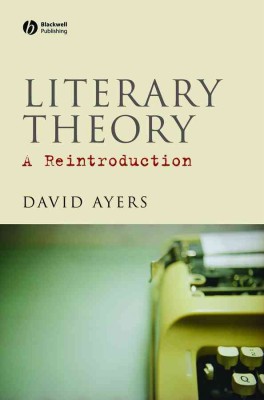| Literary Theory: A Reintroduction Contributor(s): Ayers, David (Author) |
|
 |
ISBN: 1405136014 ISBN-13: 9781405136013 Publisher: Wiley-Blackwell OUR PRICE: $38.48 Product Type: Paperback - Other Formats Published: January 2008 Annotation: "Literary Theory: A Reintroduction" introduces the current state of theory by placing it in its social, historical, and institutional contexts. Beginning in the 1920s, the book looks at the impact of the periods preceding the 'theory movement' and reintroduces this movement from a contemporary perspective. Engaging the reader in questions about the origin, reception and analysis of literary theory, Ayers explores how and why popular criticisms developed, and considers their futures. Major influences on the development of modern theory are examined, among them the creation of university English and campus politics; the Cold War; the Anglo-Americanization of French and German theory; the culture wars; and the politics of contemporary historicist scholarship. Key figures such as F. R. Leavis, Raymond Williams, Jacques Derrida, Michel Foucault, Judith Butler and Alain Badiou are also discussed. |
| Additional Information |
| BISAC Categories: - Literary Criticism | English, Irish, Scottish, Welsh - Literary Criticism | Semiotics & Theory - Literary Criticism | American - General |
| Dewey: 820.9 |
| LCCN: 2007015776 |
| Physical Information: 0.56" H x 6.41" W x 9.03" (0.84 lbs) 256 pages |
| Themes: - Cultural Region - British Isles |
| Descriptions, Reviews, Etc. |
| Publisher Description: Literary Theory: A Reintroduction introduces the current state of theory by placing it in its social, historical, and institutional contexts.
|